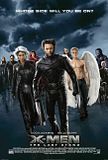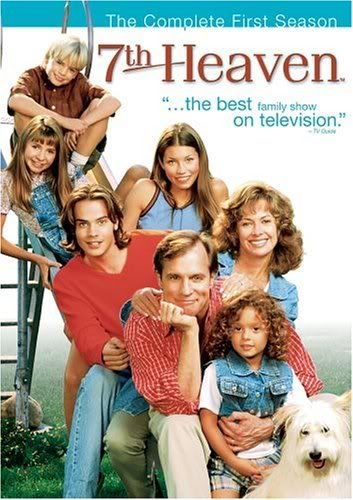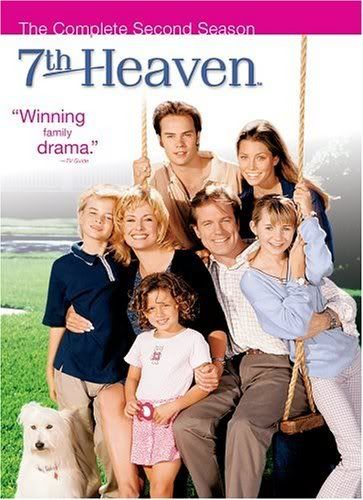Danielle Solzman: First, thank you for joining the Kentucky Democrat for an interview today. How are things going now that the primary is over?
James W. Moore: I'm honored for the invite. Things are going well, although I'm finding it a bit difficult to let go and get back to "real" life. I already miss the intoxicating atmosphere that goes along with a major campaign like this. I've discovered that I love this game, and I hope to stay in it for a long time to come. I do have a guilty conscience for having ignored my software business these last few months; Once I get that back on track, I hope to become involved in John Yarmuth's campaign to defeat Anne Northup - and I look forward to that.
DS: When did you decide to run for Congress this year and what factored into that decision?
JWM: I started thinking about it right after the 2004 election - I think that a lot of us did, because we were all angry. I decided then that I would either work for a campaign or start my own. In November I began attending Democratic club meetings, and I started asking around about who might run - nobody had any good answers. Eventually it became obvious to me that none of the name-brand Democrats in town were interested. I formed a small committee and we decided that if only rookie candidates were going to enter the field, that we should just do it, too. I was traveling in Germany in December when Andrew Horne announced, and I considered abandoning my bid then, but after reflection, I realized that a primary would be a good thing. What we didn't need was an untested rookie going up against a five-term incumbent with a million-dollar war chest. When I heard that John Yarmuth was considering a bid, I tried to contact him to find out how serious he was, and to let him know that I was thinking along similar lines. I didn't reach him before the filing deadline, and on January 30th, when he hadn't yet filed, I decided to go for it. John filed the next day, of course, and with his name recognition factor I realized that I was going to have a tougher row to hoe. But I decided to press on anyway. I figured that if I ran a good race I would at least challenge both John and Andrew, and that the process would be better for it.
DS: During the primary campaign, you made a decision to not accept PAC or special interest money. Do you think that helped in getting the votes you did?
JWM: I think that the no-PAC / no-special-interest money idea resonated with a lot of people, and it did help me to get some votes. Where I made my big mistake was my refusal to accept any campaign contributions during the primary. I decided that I would finance the entire effort myself, and that I would not advertise on conventional media against my Democratic colleagues. I wanted us to run a challenging primary against one another without costing each other any money and without causing our eventual winner any political damage. I didn't want anyone to deplete the campaign funds that will be needed to defeat Anne Northup in the fall. Unfortunately, my excruciating pledge caused the persistent misconception that I wouldn't accept contributions even if I won the nomination, and because of that many people lacked confidence in the viability of my candidacy. If I had it to do over again, I would accept private contributions simply to dispel that notion.
Through some of my contacts I've also heard that the DCCC refuses to support any candidate who will not accept PAC money. That disturbs me, and if it's true I'm going to press them to change that stance. I have to be in DC for a conference next week, so I might stop by the DCCC to have a chat with Cindy Smalls - if she'll let me!
DS: Did you ever outreach to bloggers on Kos or MyDD during your campaign? Any thoughts on the way that blogs have revolutionized politics altogether?
JWM: Although I wanted to, I never did much with Kos or MyDD simply because I lacked the resources. I did try my best to maximize the use of online communities, and I concentrated my efforts on sites with local appeal - like Louisville Mojo and Bluegrass.org, as well as MySpace and craigslist. I know that John Yarmuth had a strong MySpace presence; better than what I was able to muster. I had very good success with Mojo, which I like to describe as a sort of "craigslist on steroids."
I'm very much interested in exploiting blogs and online communities as a way to move the political discussion off of the commercial airwaves. I got really motivated after listening to Markos Zuniga talk about "Crashing the Gate" at the Louisville Metro Dem meeting on May 10th. I buy completely into that vision, and it's my hope that voters will begin to look first to the internet as their prime source for political information. We absolutely have to do something to remove the crushing financial burden of running a modern campaign as well, and the internet is obviously the way to make that happen. I intend to make that the focus of my political work.
DS: Do you think the state party is heading in the right direction in order to take back the state senate and keep control of the house?
JWM: I think so - I certainly hope so! I see some very good candidates standing up, and the organization of the state party seems adept enough that I remain hopeful. The indictment of Darrell Brock along with Ernie Fletcher certainly doesn't hurt, either. Voters have to be disgusted at the scofflaw tactics of the Republican Party, both at the state and national level. I know that I am.
DS: What about your thoughts on the image of the national party given the perception it gets in the Commonwealth?
JWM: I think that the national Democratic Party still has to prove itself. As an organization it has been in disarray since the 2000 election, really, and it has yet to fully recover. Until Democrats score some successes in key races, its image will remain tarnished. Howard Dean has done good things at the national level, but we badly need some more new blood with new ideas to help re-invigorate the party. Improving the party's image in Kentucky will be very tough; We have to give Darrell Brock and Mitch McConnell credit for their efforts in recruiting new Republican voters while making us look bad in the process.
DS: With all the mess going on in Washington, would you say that it's possible that Democrats could take back Congress and the Senate?
JWM: Yes, it's possible, but to be honest I'm not overly optimistic. The New York Times wrote an article back in February entitled "Some Democrats Are Sensing Missed Opportunities." Without question the Republican Party is trying to hand us a decisive victory on a silver platter because of their screw-ups, but I agree with the Times' analysis that the Democratic Party's gains may fall short of expectations this year. Why? Simply because we haven't yet gotten our organizational act together, and because we haven't put forth enough talented candidates in critical races. Markos Zuniga echoed that sentiment when he spoke in Louisville on May 10th. I hate to say this, but we should all brace ourselves for some disappointment this fall. (I hope to eat a large helping of crow for that prediction).
DS: There's a lot of talk about the governor's race. Do you think that it is too early to start focusing on 2007 or should we be focusing on midterm elections first?
JWM: It is absolutely critical that we start working on the governor's race this summer. I think that we can do that without sacrificing the resources that we'll need for the fall mid-term elections; in fact, if we're clever, those efforts can work nicely in parallel. Sometime this summer I'm going to try to have a conversation with Jerry Lundergan about all of that (if he remembers who I am after snubbing me on KET - sniff! ;-)
DS: I know 2008 is a few years away but are any potential candidates that you see having a good chance to reach the White House?
JWM: On the Democratic side I think that the "New, Improved Al Gore" probably has the best shot. No one besides Rupert Murdoch seems quite ready for Hillary, and I think that John Kerry has lost a bit of his mojo (not that he ever had much, poor guy, although I generally like him). I see the three of them vying for the nomination along with some side-show characters, and I predict that Al will come out on top. He might even surprise us by offering Hillary the Veep spot. On the Republican side, my nominee for "The Republican Democrats Should Fear the Most" is Chuck Hagel of Nebraska. I don't always agree with Chuck, but he's not afraid to bash Bush or Karl Rove, and he's a class act. It's hard not to like Chuck Hagel.
DS: Jon Stewart or Bill O'Reilly?
JWM: That's a no-brainer! Billy O! (Just kidding; I love Jon Stewart and I generally loathe Bill. To be honest, I've hardly ever seen either one of their shows, as I try not to watch much television, unless it's PBS. I don't even have cable TV at my house in Louisville, but "America - the Book" still makes me laugh out loud).
DS: Any particular legislation in that you would have introduced or passed if you would have been nominated and subsequently elected as a Congressman?
JWM: I would have said that it's time to dust off McCain-Feingold-Cochran (or the Shays-Meehan House version) and see what we could make happen. We need more serious campaign finance reform, and if ever I make it to either the House or the Senate, they'll have to pass some much tougher reform legislation just to shut me up.
DS: What three issues in your opinion were your priorities when you ran during the primary for Congress?
JWM: First on my list was campaign finance and ethics reform, of course. As I said repeatedly on the campaign circuit, our democracy is being stolen from us, and until we do something to get it back, we're never going to be able to accomplish much of anything else. My number two issue was the 8664 initiative that opposes some elements of the Ohio River Bridges Project. I fear that the Bridges Project as currently envisioned will destroy our ability to restore Louisville's urban character. 8664 is the right vision, and I hope to continue working with Tyler Allen and J.C. Stites to further that vision. My third important issue is education reform, because it offers us the only long-term solution to so many of our problems. I see us falling behind world standards, and I see us failing to meet the demands of our increasingly competitive, complex, technical society. Not only do we need better literacy rates, we need many more math and science students. We need more engineers to meet the needs of an information technology revolution that is only just beginning.
DS: I know that you are busy being an engineer and all, but given the name recognition you got during the campaign, would you be willing to say that this was not the end of your entrance into the political arena? I guess what I am trying to say is: will you be on the ballot in 2008?
JWM: In all honesty, I don't know. I have to tell you that I've been absolutely overwhelmed by the number of positive responses to my campaign message. I've gotten lots of praise from members of the media, from Horne and Yarmuth supporters, and from a number of Republicans and Independents who just wrote or called to say that they really admired what I did. Clearly I touched a lot of people, and there is a palpable feel that we have some real momentum to carry into 2008. As for what that will lead to is anybody's guess. What I want to do now is concentrate on electing Democrats this fall. After that, I'll talk to anybody who will talk to me - and then I'll decide, along with my supporters, what to do next. It's important to acknowledge that this thing that I've started is not at all about me - it's about us.
DS: Thanks again for joining the Kentucky Democrat for this interview and keep fighting the good fight.
JWM: Thanks for having me. I must say that I'm a bit surprised myself at the degree to which I became emotionally invested in this thing. For what it's worth, I think that some of the passion that I felt in this campaign became contagious, and a lot of people picked up on that. Let's keep that feeling going as we head into the next round.



